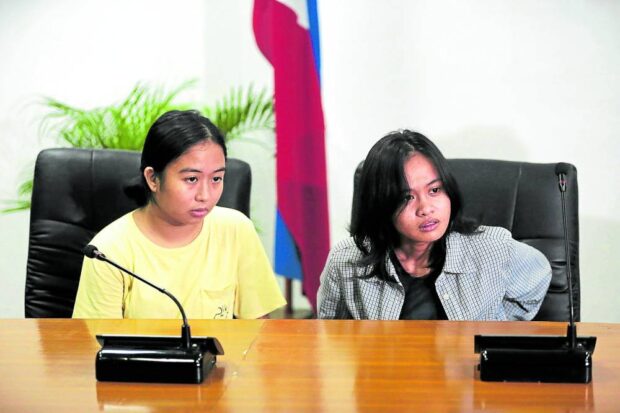High court grants protection to 2 green activists

Jhed Tamano and Jonila Castro
The Supreme Court has granted a petition by two environmental activists for protection against state authorities allegedly responsible for their abduction last year and persons and government entities that covered up the action and threatened further violations of their rights and freedoms.
In an 18-page decision published on Thursday, the Supreme Court en banc granted the petition for the writs of amparo and habeas data, and a temporary protection order (TPO) filed by Jhed Tamano and Jonila Castro against Lt. Col. Ronnel dela Cruz and members of the 70th Infantry Battalion (IB) of the Philippine Army, which he commands.
Also named respondents were National Security Council Assistant Director General Jonathan Malaya, the National Task Force to End Local Communist Armed Conflict, Police Captain Carlito Buco and members of the Philippine National Police, Bataan, and all others acting under the “direction, instructions and orders” of the government agencies mentioned.
The court ruled that the two activists’ requests for a production order are to be heard by the Court of Appeals.
A production order compels the respondents to release all documents related to the case.1-km radius
Article continues after this advertisementThe TPO prohibits the respondents from coming within a 1-kilometer radius of the petitioners and their families, their homes, schools and workplaces.
Article continues after this advertisementThe high tribunal found “more than mere substantial evidence” in their allegations that merited the protection of their freedoms through the writs of amparo and habeas data.
On Sept. 2, 2023, the activists went missing, prompting the Commission on Human Rights to investigate. They were last seen in Orion, Bataan. On Sept. 15, 2023, authorities said the two, whom they claimed were members of the New People’s Army (NPA), were “safe and sound” after they “surrendered” to the 70th IB in Bulacan.
But when they were presented to the media on Sept. 19, 2023, the two women who are in their early 20s, openly accused the military of kidnapping them and forcing them to say in their sworn statements that they voluntarily surrendered.
The Supreme Court cited the statements of Malaya in an ABS-CBN interview where he announced that they would “expose all information they” have on the two and that they may be charged with perjury in relation to their affidavits while in Army custody.
The high court said Malaya’s pronouncements were “already an open and express threat to petitioners’ right to life, liberty and security publicly verbalized by government official admittedly engaged in the gathering, collecting, and storing of data and information against petitioners.”
This satisfied the purpose and coverage of the writ of amparo, which is a remedy to any person whose right to life, liberty and security are violated or threatened with violation by an unlawful act “or omission” by state authorities or private individuals or entities.
Remedy
The writ covers extrajudicial killings and enforced disappearances or threats and the elements of enforced disappearance were present in the case.
The writ of habeas data is a remedy for an aggrieved person whose right to privacy in life, liberty or security is violated or threatened by government authorities or private persons and entities engaged in gathering, collecting or storing of information on such person, his family, home and correspondence.
The court cited accounts of witnesses to the abduction, the two women’s statements that they left their footwear during their struggle against their abductors, and the photos of these at the scene.
The Supreme Court said that Castro’s mother, Rosielie, tried hard to find her missing daughter and coordinated with a certain Justin Gutierrez, who allegedly introduced himself as a member of the military, and with the officers of the Orion Municipal Police Station, but received no positive response from them.